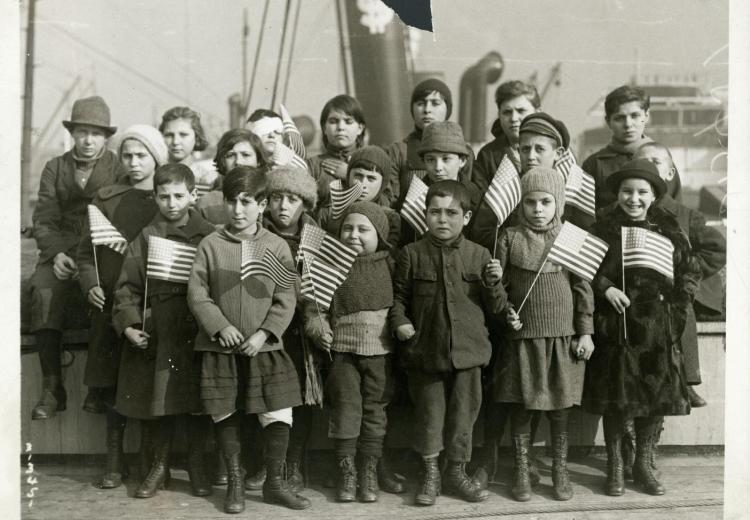Immigration and Citizenship Keyword Thesaurus for Chronicling America

Created by partners in the National Digital Newspaper Program, this resource hopes to serve researchers at all levels through demonstrations and explanations of search terms related to immigration and citizenship status in Chronicling America. Established in 2005 through a partnership between the National Endowment for the Humanities and the Library of Congress, Chronicling America contains nearly 23 million pages of newspapers supported by the work of partners in 50 states, the District of Columbia, Puerto Rico, and the U.S. Virgin Islands.
Searching a database of this size can seem like an impossible feat at the onset. To help, Chronicling America features two search functions that allow for search terms, or keywords, to be run through the texts of newspaper pages. This is an immensely efficient and effective way to search millions of pages of content, yet keyword searches still do not always produce the results we want or need. Developing the most useful keywords requires knowing what terms were used in the period you are searching, rather than what the common, contemporary terms might be.
Identifying keywords can be particularly challenging when searching for news about immigration , since much of the language describing the voluntary and involuntary movement of peoples has evolved and changed throughout the centuries, and their meanings may vary depending on who is using the terms and the context in which they are using them.
The pages in this Immigration and Citizenship Keyword Thesaurus serve as a guide to searching topics of people’s voluntary and involuntary movement in Chronicling America, including lists of words used in the past that may help produce more results, as well as strategies for navigating the database. When using this resource, keep in mind that historical newspapers, like all primary documents from the past, use the language of the time they were written, which may include terms considered offensive today. While efforts have been made to include and increase the ethnic press content in Chronicling America, most of the newspapers currently in the database are English-language and produced by white publishers and editors. In this iteration, this Thesaurus is intended to primarily assist researchers in identifying terms on immigration in the English-language press. Researchers should be mindful that immigration does not exist independently but intersect with other aspects of society like community size, class, and gender. Researchers should also be mindful that Chronicling America is nota comprehensive source of historical U.S. newspapers. Explore Chronicling America's newspapers on an interactive map and timeline interface and view additional data visualizations to better understand the scope and coverage of newspapers currently available in the collection.
EDSITEment also offers a thesaurus for searching keywords related to race and ethnicity.
